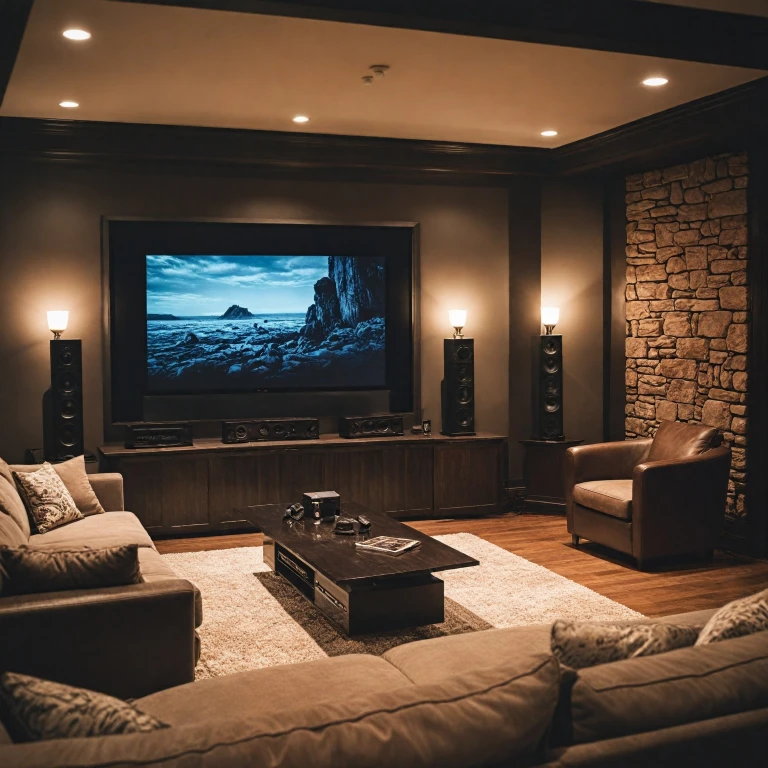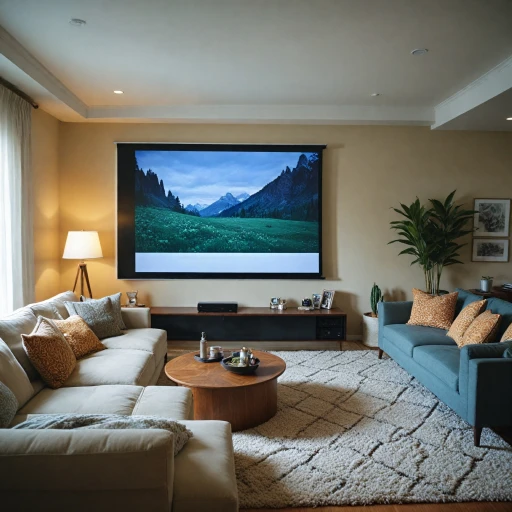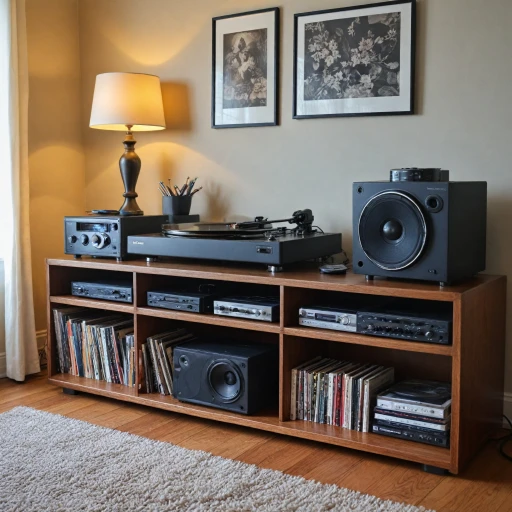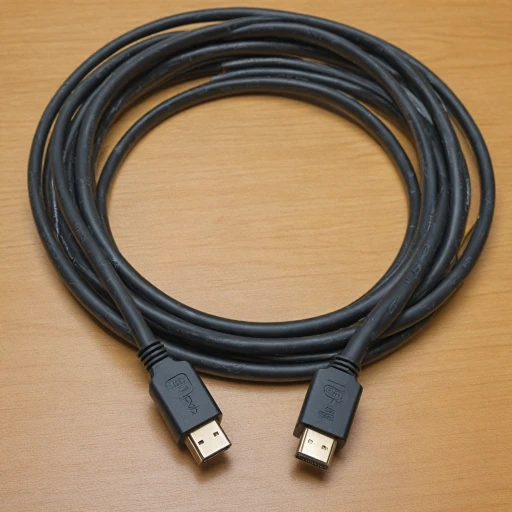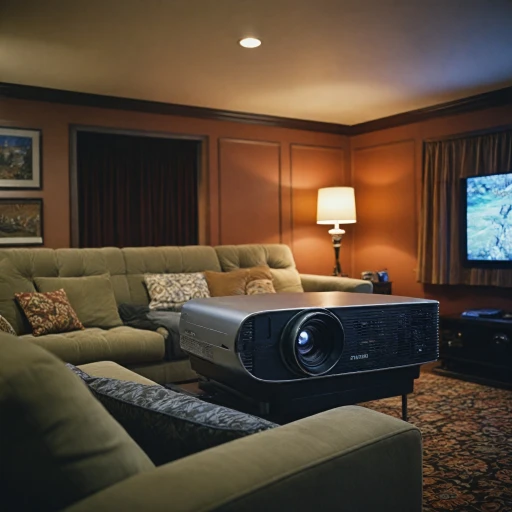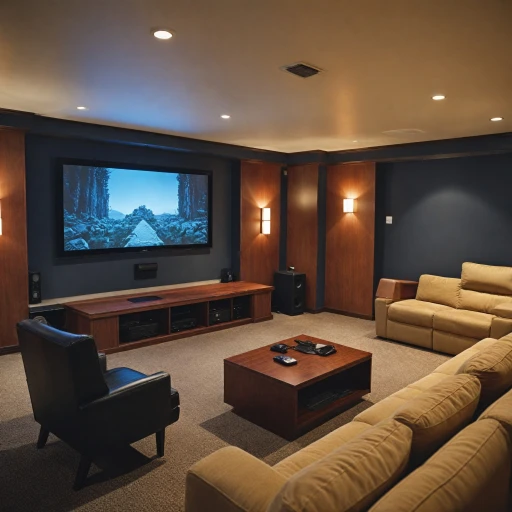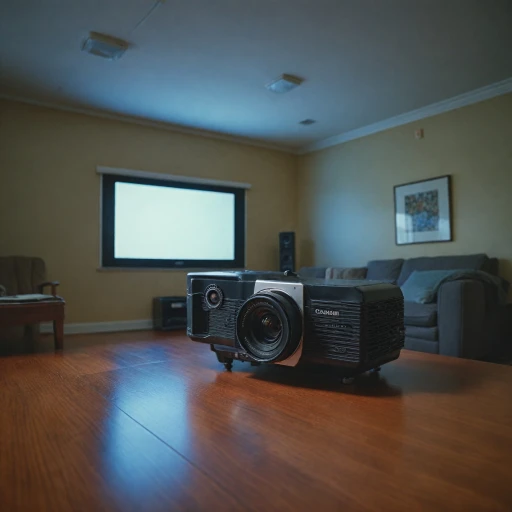Understanding HDMI Modulators
Demystifying HDMI Modulators
HDMI modulators are essential components for integrating multiple HDMI devices into a coherent home theater system. They are designed to convert HDMI signals into coaxial signals, enabling the transmission of high-quality audio and video to various TVs throughout the home. This process ensures that all your digital content can be displayed on any compatible screen, seamlessly bridging the gap between your advanced HDMI technology and traditional coaxial setups.High-definition (HD) TVs demand top-tier modulator options to ensure superior image and sound quality. The best HDMI modulators cater to the needs of various systems, providing reliable signal strength and maintaining high-definition viewing experiences without distortion or lag. Different modulators offer unique features such as multiple channel output and optional remote control for ease of use.
When selecting an HDMI modulator, consider device compatibility and the number of HDMI signals you intend to distribute. It's essential to choose a modulator that can handle high-quality HDMI signals without compromising the quality of your favorite movies or engaging games. Furthermore, understanding transmission capabilities and deciding whether you need a digital modulator for enhanced audio-visual experiences is vital. For more insights on ensuring your HDMI signal retains its quality, check out this helpful resource on choosing the right HDMI cable for your setup.
Ultimately, the right HDMI modulator not only serves as a conduit for high-quality digital signals but also enhances the overall ambiance and effectiveness of your home theater setup. As you delve deeper into key features and top product recommendations, you'll understand why making an informed choice is crucial for optimizing your entertainment experiences.
Key Features to Consider
Identifying Essential Features
In the quest to identify the ideal HDMI modulator, it's crucial to examine certain features that will significantly affect the performance and compatibility with your home theater setup. Here's a comprehensive checklist to guide your decision-making process:- Compatibility: Ensure that the modulator is compatible with your existing HDMI devices and TVs. Compatibility with different resolutions like 720p, 1080p, and even 4K indicates versatility and future-proofing.
- Output Options: Look for modulators that offer multiple outputs. This includes HDMI output as well as coaxial and digital outputs. Such flexibility allows for seamless integration with various AV setups and distribution to multiple TVs.
- Signal Quality: The ability to maintain high quality digital signals is vital. A premium quality modulator preserves both video and audio quality, ensuring a true-to-life audio visual experience.
- Channel Assignment: Some modulators allow you to assign specific TV channels for broadcasting the HDMI signal. This feature allows users to organize their signal distribution efficiently, especially in larger home theater setups.
- Remote Control: A remote control feature provides convenient ways to manage and switch between channels or input sources effortlessly. Look for models that offer easy-to-use and intuitive remote control interfaces.
- Audio Video Synchronization: Ensuring that the audio and video signals are perfectly synchronized is key to an enjoyable viewing experience. Many of the best modulators come equipped with advanced features to keep audio and video in sync.
- Build Quality: A high build quality is essential to guarantee the durability and long-term performance of your HDMI modulator. Robust designs and reliable brands like Thor Broadcast can enhance user confidence in their investment.
- Transmission Strength and Range: Consider the transmission strength of the HDMI signals. High transmission capabilities will support long-distance signal extensions without compromising quality.
Top HDMI Modulators on the Market
Top HDMI Modulator Picks for Your Setup
When it comes to selecting the best HDMI modulators for your home theater, quality, compatibility, and ease of use are key factors to consider. Below are some of the market's top contenders that have stood out due to their performance and features.- High-Definition HDMI Modulator: Renowned for its exceptional video and audio quality, this modulator ensures a high-definition experience for your TVs. With digital modulation, it maintains the integrity of the HDMI signal over coaxial cables.
- Single-Channel HDMI Modulator: This modulator is perfect if you are focusing on one channel. Its straightforward setup and reliable output make it a favorite for users prioritizing simplicity and effectiveness.
- Remote Control Adaptability: Some HDMI modulators come with remote control features that give you the power to manage your video audio transmission with ease. This feature is especially useful for home theaters with multiple devices.
- Thor Broadcast HDMI Modulator: Known for its high-quality signal transmission, the Thor broadcast offers solid compatibility with various HDMI devices, enhancing your overall audio visual experience.
Installation Tips and Tricks
Practical Steps for Setting Up an HDMI Modulator
When it comes to installing an HDMI modulator, ensuring the correct setup is crucial for high-definition signal transmission throughout your home theater system. Here’s a guide to help you navigate the installation process effectively:- Ensure Compatibility with Your Devices:
- Connect the HDMI Inputs:
- Set Up the Coaxial Cable Network:
- Configure Output Channels:
- Calibrating the Signal Quality:
- Utilize Remote Control Features:
Troubleshooting Common Issues
Addressing Simple Issues
When it comes to HDMI modulators, encountering issues is not uncommon. Understanding the common problems and their solutions can save you a lot of hassle. First and foremost, ensure all cables, including HDMI, coaxial cables, and any associated components, are securely connected. A loose connection can often be the culprit of poor signal transmission.Tackling Signal Interference
Signal interference can be a major headache for those seeking high-quality output from their HDMI modulators. Digital modulator outputs, in particular, are highly sensitive to interference, which can degrade both audio and video quality. To mitigate this, inspect the surrounding environment for any potential electro-magnetic interference sources such as other digital devices, especially those operating on similar frequencies.Enhancing Audio and Video Transmission
If you notice that the video or audio is not clear, check the quality of cables used. Investing in high-quality HDMI cables and coaxial cables can make a significant difference in quality. Ensure that these cables are high-definition and compatible with your TV's requirements to prevent any loss in signal strength.Compatibility and Channel Issues
A mismatch in compatibility is another frequent issue. Modulator HDMI units should always be compatible with the TV and other external components. If your HDMI video or audio does not display on the desired channel, verify channel settings on both your TV and the remote control. Sometimes, simply switching inputs or programming the modulator correctly can solve these issues.Regular Maintenance Checks
Conduct regular checks and updates on your HDMI devices. Ensure that firmware for your HDMI modulator is up-to-date to avoid outdated software causing glitches. Whether it's Thor Broadcast or any other brand, keeping your devices in top condition can prevent numerous common issues.Enhancing Your Home Theater Experience
Maximizing the Potential of Your Home Theater
Once you've selected the best HDMI modulator for your home theater, it’s essential to focus on elements that can significantly enhance your audio visual experience. Consider these tips for achieving an immersive, high-quality setup:
- Ensure HDMI Signal Quality: Start by checking the integrity of your HDMI cables. High-quality HDMI coaxial cables are critical for optimal signal transmission, reducing loss, and ensuring that your digital modulators deliver crisp video and clear audio.
- Optimize Channel and Output Settings: Customize your modulator’s channel settings to suit your specific needs. Properly adjusted output settings can improve the synchronization between various HDMI devices, enhancing overall performance.
- Enhance Audio and Video Compatibility: Verify that all connected TVs and audio systems are compatible with your HDMI modulator’s capabilities. This ensures a seamless integration of digital and audio visual signals across devices.
- Utilize Remote Control Features: Many modern modulators and TVs come equipped with remote control options. Utilize these features for convenient management of your system’s settings and enjoy the flexibility of adjusting configurations remotely.
- Consider Professional Installation: Investing in professional installation can be worthwhile, particularly if you're unfamiliar with complex setups. Experts can ensure that all HDMI signals and coaxial cables are optimally connected for the best high definition result.
By paying attention to these facets, you bolster not only the quality of the broadcast but also your control over your home theater system. The experience moves beyond just watching video; it transforms into a fully immersive event with high-definition viewing and exceptional audio fidelity.
